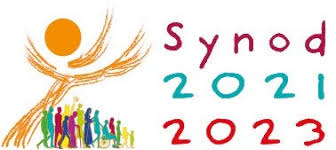 ~ by Dan Stockman, Global Sisters Report (GSR)
~ by Dan Stockman, Global Sisters Report (GSR)
Sacred Heart Sr. Maria Cimperman is a true believer in the Synod of Bishops on synodality.
Cimperman, Director of the Center for the Study of Consecrated Life at Catholic Theological Union in Chicago, is part of a four-member panel put together by the International Union of Superiors General (UISG) for women religious and the Union of Superiors General (USG) for men religious.
Religious congregations have until March 27 to submit their responses for the synod. Cimperman and her fellow commission members will meet in April in Rome to begin synthesizing those responses for the General Secretariat of the Synod of Bishops and the Congregation for Institutes of Consecrated Life and Societies of Apostolic Life. The response must be filed by August.
GSR: Your passion for the synod is undeniable.
Sr. Cimperman: It goes against polarization. Normally, we are in our own little worlds, and this – the synod – is flying in the face of that, and you don’t know where it’s going to go, which means it’s probably the Spirit guiding it.
The whole synodal process is really communal discernment. How do we walk and talk with each other and hear each other? And if we do it right, it may not be that dominant voice that stands out, it may be that quiet voice you hear and say, “There is truth in this.” How do we invite and engage religious everywhere in this so it’s not only the leaders, it’s everyone in the church and even people not in the church.
GSR: You have talked about how vowed religious have a particular role to play, by helping the process for laypeople.
Sr. Cimperman: Religious are being called to offer something – really, two things. Yes, fill out your response as religious, but also participate in the parishes, our schools, wherever the conversations are happening, to listen and hear – because we’re always trying to meet the unmet needs – and to offer some of our ways, to show how we seek to listen through our own discernment processes.
We have some experience in communal discernment. It’s the experience of listening, engaging, ways of being silent and listening, modes of prayer. Plus, we’ll learn from other people. It’s a space where we can offer what we are deeply about.
Continued on next page…
GSR: Will it matter? Is it really worth the bother when so many people say the church won’t listen and nothing will change?
Sr. Cimperman: People are asking that question. It is an act of hope. It’s an action – and it’s hope. That’s important.
I also see this as a call of the Spirit. This is a cure for that polarization and all this division. Synodality is asking us to sit with one another and have a conversation and listen and do some sharing. If we don’t do this, if we keep doing the same thing, what will happen? This is not doing the same thing. This is doing something different.
Also, I have confidence in the Spirit’s movement among us. This is not top-down. It’s not bottom-up. It’s coming from everywhere. Everyone is asking and being asked to be involved in this. We don’t know where it’s going to lead, and that’s exciting.
GSR: Do you get the sense that people are responding, that they really are participating in this process?
Sr. Cimperman: I think they’re getting so many people responding that they are trying to refigure how to do this. To me, that’s a great sign. There’s a hunger, and we’re going to lose people if we don’t engage them, the possibilities here are immense. And we, too, as religious can offer spaces for these conversations, space for people of the margins whose voices don’t get heard.
GSR: Is there some fear that what is said and heard may not be positive? There’s no shortage of people with criticisms of the church.
Sr. Cimperman: I think we are going to hear both pain and grace, but we don’t know where the conversations will lead.
To read the complete account, please click here
